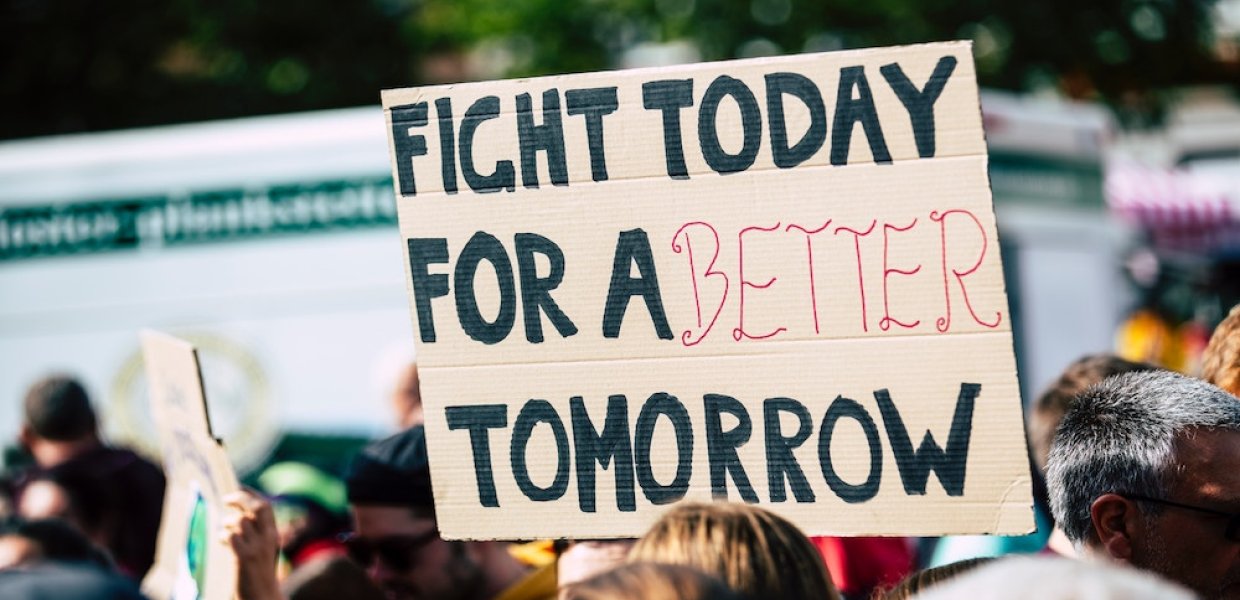If you’re on social media, there’s a chance that at one time or another, a social cause resonated with you. You may have felt closely aligned to it through self-identity, past experiences or maybe it just pulled at your heartstrings because that’s how humanity works.
So, you did what people on social media do: you changed your profile picture, used a trending hashtag, liked, retweeted or shared. You may have even signed your name and provided an email address for an online petition. And be honest, it felt good, right?
After all, the payoff was two-fold — you spread awareness about an important cause and let your followers know that you are an altruistic, civically minded individual.
Except this type of armchair activism, known as slacktivism — a portmanteau of the words “slacker” and “activist” coined by Dwight Ozard and Fred Clark at the 1995 Cornerstone Festival — has actually been proven to do more harm than good.
The newest type of slacktivism, clicktivism takes place online and enables anyone with a social media account and access to the internet to be an activist in the most basic sense of the word.
The only problem is, most of these online campaigns operate under the unofficial motto of ask simpler and easier. Because social media allows for a quick and easy way for someone to show support for an organization or a cause, people are less likely to do research about what the cause actually is. A click is far more convenient than showing up to a protest or writing a letter to a government official.
By not understanding the complexities of an issue, supporters can be left feeling stupid or can harm the very cause they seek to help.
In 2009, Danish psychologist Anders Colding-Jorgensen created a Facebook group as part of his research and announced that Copenhagen city authorities would be demolishing the historic Stork Fountain. At first, 125 individuals joined the group, but that number quickly inflated to over 27,500 people. The only problem was that the cause they were supporting was completely fictitious. Colding-Jorgensen was seeking to prove the detrimental effects of showing online solidarity for an issue they didn’t know anything about.
The problem stems from the fact that the internet is a largely unregulated, informational frontier that is often oversaturated with hoaxes, misinformation and bad science. While communication on a global scale has the potential to spread knowledge, bad actors and genuine misinterpretations often make online activism feel more like a game of broken telephone.
So, what do you do the next time you come across a campaign that’s asking for your support? The answer is simple: First, do your research. You will not only gain a better grasp of the issue, but also arm yourself with knowledge to discuss it effectively enough to spread the word.
Second, adjust your expectations. Studies have shown that online campaigns are far more effective at targeting local issues than global ones. For example, if you’re concerned about climate change, understand that while you may not have the power to convince the world to switch to green energy, you can begin to minimize your own carbon footprint through mindful lifestyle adjustments.
Never underestimate the power of showing up and making a difference through actual human interaction, whether it be attending a protest, writing a letter to a government official/CEO or donating money, however modest it may be. In 2010, the Red Cross raised $5 million in two days through $10 text donations for the Haiti earthquake relief. That proves that a little goes a long way when we all come together.
There’s no denying that through online activism, significant movements have taken place — the Arab Spring, #BlackLivesMatter and #TimesUp campaigns and, recently, an effort to harness ownership over individual data privacy, to name a few. But what made these movements so successful is the fact that people moved away from their screens and gathered in person in the streets, on stages at awards shows and before Congress in a strategic effort to bring forth tangible change.
The next time you’re compelled to change your profile picture, use a trending hashtag, or like, retweet or share a post about a cause you feel strongly about, ask yourself, “How much do I really know about this?” And then ask, “Is there something more that I can do?”
To download a full copy of the 2020 Relevance Report, click here.
